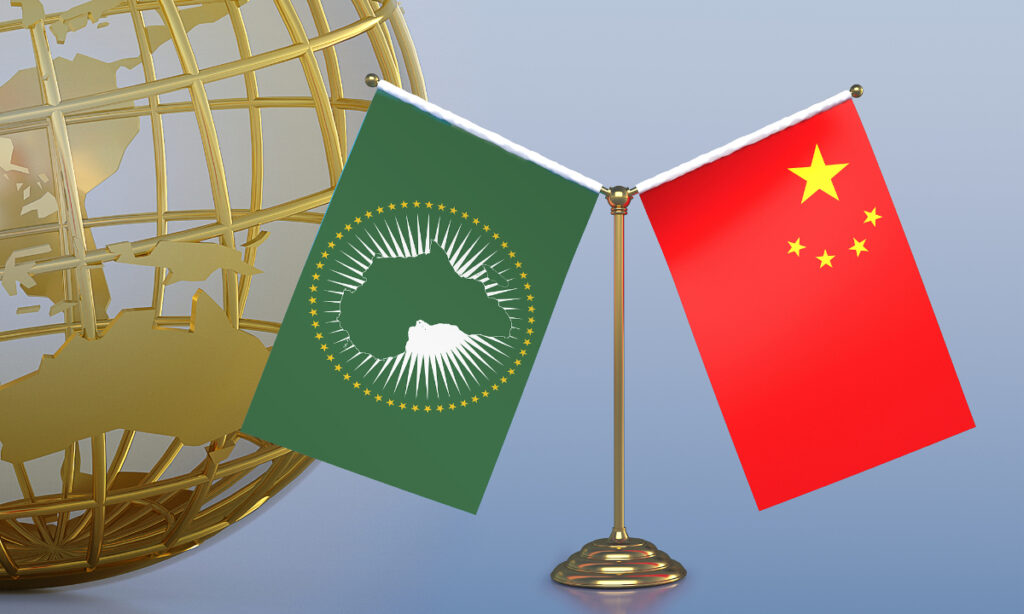China’s top diplomat Wang Yi’s ongoing visit in Africa will further deepen and expand the solid traditional friendship between China and African nations, and strategic cooperation with relevant countries is not just about trade, infrastructure and the Belt and Road Initiative (BRI), but also coordination and cooperation between developing countries on international hotspot issues like mediating the Ukraine crisis and security problems on the continent like the Sudan conflict.
Wang, director of the Office of the Foreign Affairs Commission of the Communist Party of China (CPC) Central Committee, also a member of the Political Bureau of the CPC Central Committee, will attend the 13th Meeting of BRICS National Security Advisers and High Representatives on National Security in Johannesburg from July 24 to 25, as well as visit Nigeria, Kenya, South Africa and Turkey before and after the meeting, according to the announcement of the Chinese Foreign Ministry on Wednesday.
On Saturday, Wang met Kenyan President William Ruto and Alfred Mutua, cabinet secretary for Foreign and Diaspora Affairs of Kenya during his visit to Kenya. On Friday, Wang paid a visit to Ethiopia en route to the BRICS meeting which will be held in Johannesburg, South Africa, where he met Ethiopian Prime Minister Abiy Ahmed and Deputy Prime Minister and Minister of Foreign Affairs of Ethiopia Demeke Mekonnen Hassen.
In January, the Chinese foreign minister also visited five countries in Africa – Ethiopia, Gabon, Angola, Benin and Egypt – as well as the African Union Headquarters and the League of Arab States Headquarters.
Chinese analysts said at the beginning of the second half of 2023, China has once again sent a senior diplomat to visit Africa, which shows that as the world is still suffering from the turbulence caused by geopolitical crises like the Russia-Ukraine conflict and is striving for post-pandemic recovery, China will continually push forward its traditional ties with African countries. To help form a fairer and more reasonable multi-polar world order, China will keep working with its key African partners.
He Wenping, director of the African Studies Section at the Institute of West Asian and African Studies under the Chinese Academy of Social Sciences, told the Global Times on Sunday that Nigeria, Kenya and South Africa are major regional powers with significant economic and political influence in the east, west and south of the continent, and they all maintain close ties with China. “Wang’s visit will show China’s efforts to help African nations to promote regional integration.”
China’s unique advantage
Kenyan President Ruto told Wang during their meeting that Kenya-China relations have been developing smoothly since the establishment of diplomatic ties 60 years ago. The president said strengthening friendly cooperation with China has become a consensus shared by all sectors in the country, the Xinhua News Agency reported on Saturday.
Ruto highly praised China’s efforts in growing relations with Kenya based on the principle of mutual respect. Kenya is firmly committed to deepening the comprehensive strategic cooperative partnership with China, and is willing to strengthen inter-party exchanges, deepen cooperation in such fields as rail, highways, water conservancy, aviation and renewable energy under the frameworks of Belt and Road cooperation and the Forum on China-Africa Cooperation, in order to promote connectivity and regional integration in Africa and achieve win-win results, Ruto said.
On Tuesday, President Abdelmadjid Tebboune of Algeria, a key major country in North Africa, visited China. Experts said China’s strategy and policy toward Africa comprehensively covers all directions of the continent, and China-Africa cooperation is fairly and sustainably benefitting the people with different ethnicities, religions and cultural backgrounds in Africa, a unique and special advantage of China compared to other major powers.
The complementary China-Africa cooperation in the past decades has yielded fruitful achievements and will deepen day by day based on strong friendship, Liu Qinghai, a professor at the Institute of African Studies of Zhejiang Normal University, told the Global Times.
While the US is ramping up efforts to pull together small cliques to contain China globally, including hyping false narratives like “China threat theory” or “debt-trap diplomacy” to interrupt China-Africa relations and force African countries to take sides in the bloc confrontation launched by the US, China and African countries are engaged in more interactions, which highlights African countries’ strategic autonomy and their unwillingness to take sides in the major power competition and confrontation, Liu said.
The Western-hyped fallacies will not fool African countries which have wisdom and strategic autonomy, He Wenping said. He said that African states know better than anyone who the main creditors holding the majority of African debts are. “It’s not China, but Western countries and some international organizations, and they know Chinese loans are being used for development projects, which can bring sustainable economic growth.”
Mutua, cabinet secretary for Foreign and Diaspora Affairs of Kenya, said at the meeting with Wang that the Kenya-China friendship is not a choice of expediency, but a long-term strategic choice that will yield mutual benefit and win-win outcomes, Xinhua reported.
Kenya will never forget the support and help China extended to the country when it faced difficulties and challenges, and it is willing to deepen cooperation with China in trade, investment, agriculture, healthcare, infrastructure construction, climate change and other fields to promote further development of the Kenya-China comprehensive strategic cooperative partnership, Mutua said.
Kenya is ready to join hands with China to maintain regional peace and security, strengthen coordination and cooperation in multilateral affairs and jointly build a better world, Mutua noted.
Cooperation on international issues
Li Haidong, a professor at the China Foreign Affairs University, told the Global Times on Sunday that “Attending the 13th Meeting of BRICS National Security Advisers and High Representatives on National Security in Johannesburg is a key activity during Wang’s trip, and admitting new members of the BRICS or expanding the BRICS cooperation mechanism will be high on the agenda.”
“More importantly, the BRICS meeting chaired by South Africa this year will consider admitting more emerging economies with potential and influence, especially ones in Africa. Some African countries like Algeria, Ethiopia and Kenya’s willingness to join BRICS will be discussed, as they show interest in playing a more important role in the international arena and they want to be benefited by joining the multilateral cooperation mechanism,” Li said.
Currently, security problems like Ukraine crisis and the Sudan conflict are still troubling the world or the region. How to promote cooperation and coordination among developing countries, as well as emerging economies like BRICS members, is high on the agenda at this meeting, experts noted.
China and other BRICS countries including India, South Africa and Brazil, share similar views on conflict mediation on the Ukraine crisis, and they are much more qualified and creditable than the West to explore ways for cease-fire and peace as they all hold an objective stance over the crisis, analysts said, adding that China will try to reach consensus with other countries on the crisis.
(Global Times)




